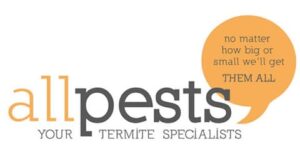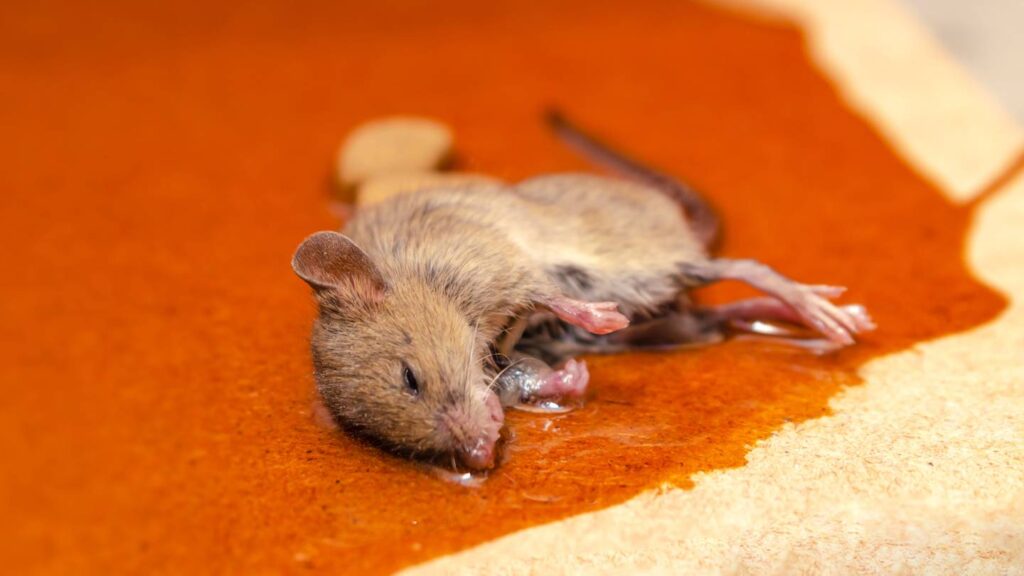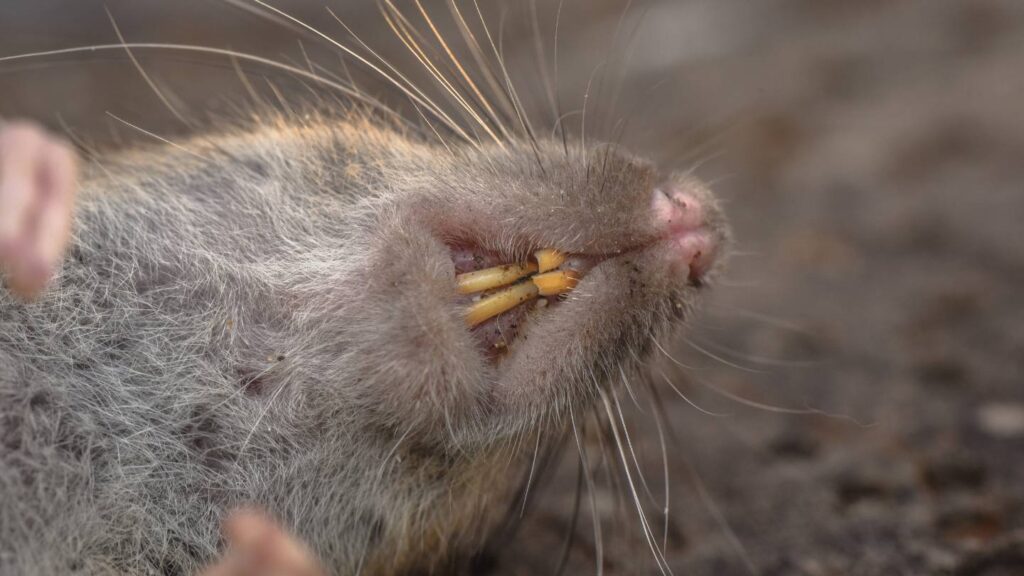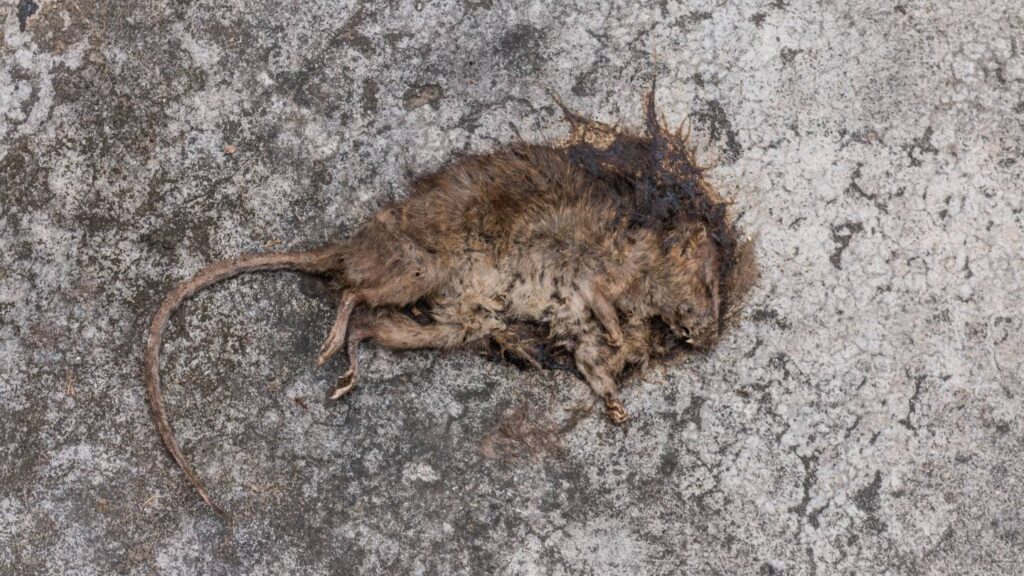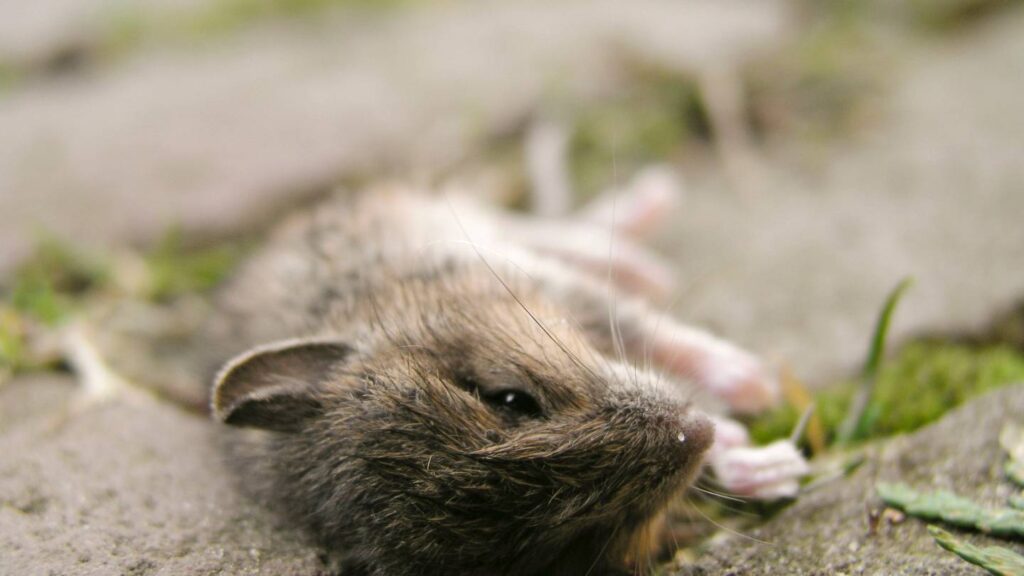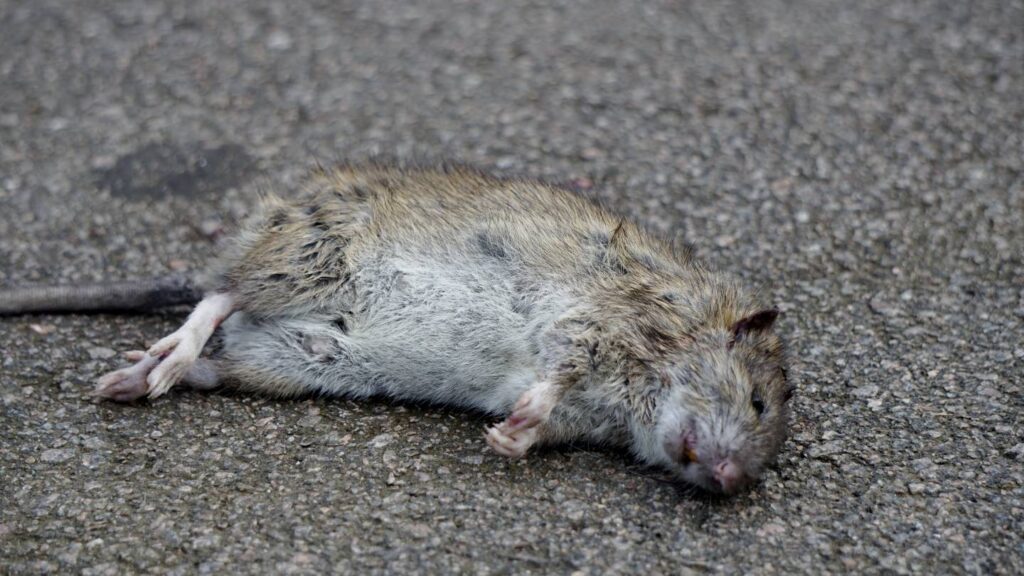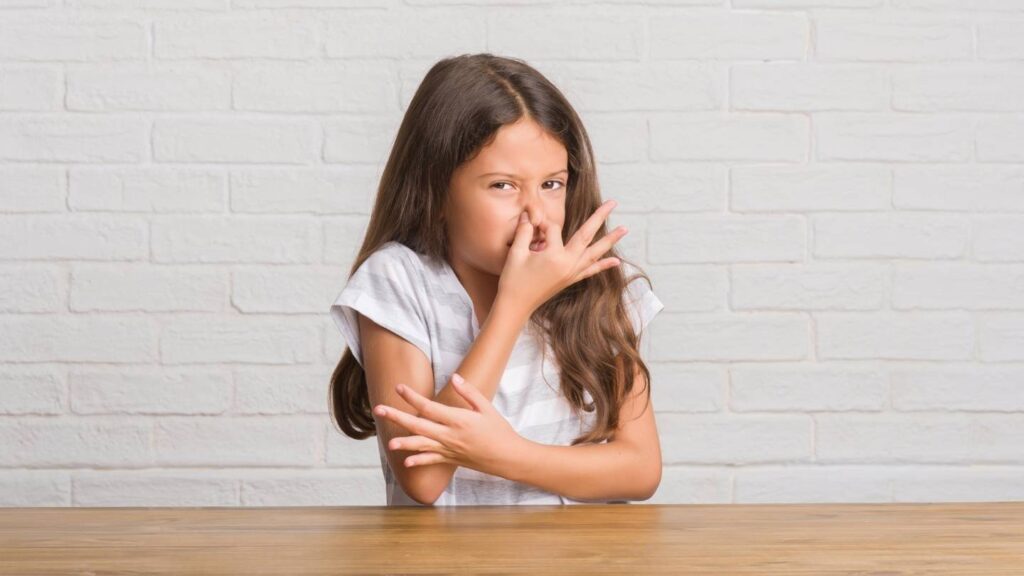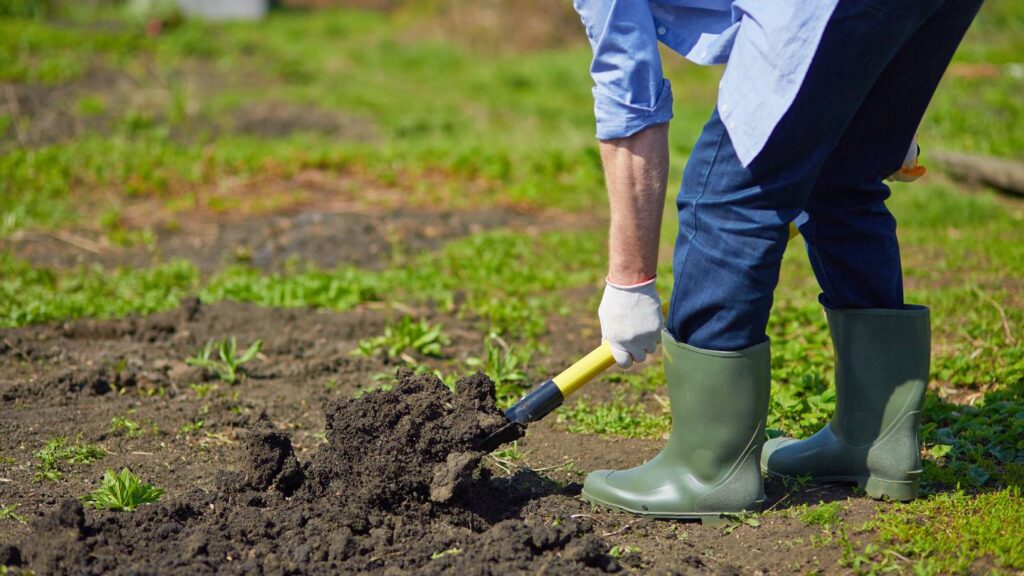Not only is it unpleasant to find a dead animal on your property, but the thought of having to remove it yourself is even less attractive. However, many people still attempt to remove the carcasses on their own. For several reasons, this is an issue.
The first consideration is the potential dangers of removing a dead animal, especially if it is big or in an awkward place. Also, you and your family could be at risk for illness if you don't know how to dispose of a deceased animal properly. Lastly, other pests, such as insects and rodents, can get attracted to a dead animal if it is not removed correctly.
What Is Dead Animal Removal?
Hiring experts to remove dead animals is necessary if you want the job done right without waste or health hazards. When you remove a dead animal from its location, a lot of things go wrong. For example, the corpse could infect rodents like mice and insects.
The region could start to smell like decay, and someone could get hurt trying to move the carcass. Hiring experts is your best bet if you want to keep your home clean and clear of dangerous material while minimising all of these risks.
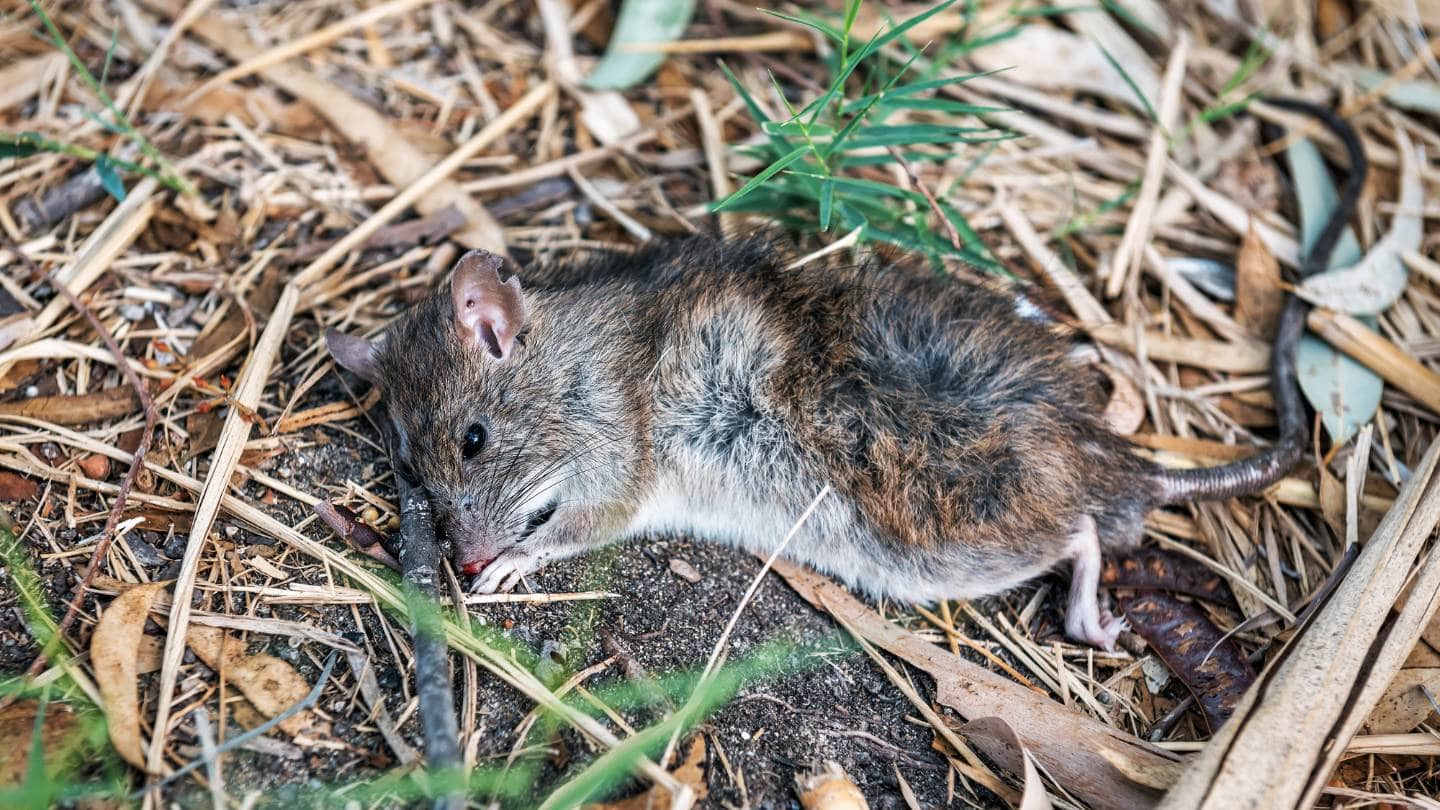
How Dead Animal Removal Can Benefit You
If you want your land to be left clean and devoid of any animal carcasses, hiring experts to remove dead animals is a good idea. Additionally, experts may cleanly dispose of the animals, eliminating any risk to human health. Attempting to clean up the mess on your own could put you and everyone around you at risk of illness and contamination.
Destroying an animal that has died on your land is never an enjoyable experience. Even while some people think they can handle dealing with a dead animal on their own, it's advisable to get the experts involved. The following are just a few of the many advantages of hiring professionals to handle this task:
Safety
Particularly concerning from a health and safety perspective are animal carcasses in the process of decomposition. They pose a health risk by introducing vermin, such as rats and insects, into your house. In addition, with the right safety equipment and education, dealing with dead animals is quite safe. Pros in the area will know just what to do to remove the body from your property safely.
For reasons related to health and safety, it is always best to employ experts like us to remove dead animals. This is because we have the necessary gear and training to safeguard ourselves (and you) from parasites or diseases that the animal may have been harbouring. The danger of contracting an infection is too great to risk touching or moving the dead animal on your own.
Thoroughness
Hiring professionals for dead animal removal gives you peace of mind since they will thoroughly clean the area where the animal was located. Thoroughly cleaning where the animal was kept was crucial in reducing the possibility of disease and unpleasant smells. In addition to cleaning, the experts will disinfect the area, making it safe for you and your loved ones to use.
Proper Disposal
In many places, it is illegal to dispose of or bury a deceased animal on private property. Call a professional waste management service if you need an animal disposed of in a way that complies with local, state, and federal regulations. Avoiding fines and other legal issues is made easier with this method.
Odour Control
For weeks—if not months—the smell of a dead animal can linger. Experts in animal removal have access to deodorising solutions and tools that effectively combat unpleasant animal smells. If you follow these steps, your home will be more liveable and less likely to have unpleasant odours.
Time-Saving
When you don't have the right equipment or training to remove a dead animal from your property, time is of the essence. If you want more time and energy for other things, hiring people to remove dead animals is smart.
Peace Of Mind
The sight of a lifeless animal on your land can be a distressing and unsettling sight to behold. On the other hand, when you use professionals to remove the carcass, you can relax, knowing that they have the expertise and tools needed to complete the job right.
Cleanup And Sanitisation
Having a professional take care of dead animal disposal lets us fully clean and sanitise your home after the animal is gone. It is crucial to clean the area well since the germs in animal carcasses can live on surfaces for a long period, increase, and spread.
Access
Dead animal removal is best left to trained experts like us since we have the equipment necessary to access any location, no matter how inaccessible, to remove the carcass. Unless the stench of decay catches their noses, the human occupants of a dwelling may not even realise that an animal has died since wild animals seldom die in places that are comfortable for humans.
Legal Compliance
Several rules and regulations are put in place to safeguard wildlife. Keep in mind that it is not always permissible to relocate animals. It is essential to adhere to the law and put the well-being of humans and wildlife first, as there are fines and penalties for violating these restrictions.
Humane Treatment
Treating animals with compassion is a top priority for wildlife removal professionals. We have received training in humane techniques to keep the animals as comfortable and safe as possible throughout the removal process. It's not responsible nor compassionate to try to help the animals on your own if you end up hurting or killing them.
Preventing Recurrence
The goal of wildlife removal should not be merely to eliminate the present infestation but also to forestall any further incursions. They can find entrance points and weaknesses and provide solutions to make your home less attractive to animals. By being proactive, we can lessen the likelihood of these problems reoccurring.
Protecting Your Property
Damage to your home or business from wildlife incursions can be substantial. Damage to insulation, electrical wiring, and structural components can result from animals chewing on these items. By fixing the problem quickly and offering suggestions, they can assist in lessening the impact of such harm. The ultimate benefit of hiring professionals is avoiding costly repairs due to substantial property damage.
Remove Dead Animals On Your Own
Finding a dead animal on your property is disturbing enough; trying to remove it yourself is a whole other ballgame. Because there are so many potential dangers in handling animal carcasses, it is crucial to have them removed by trained professionals.
Exposure to health dangers is the most significant risk associated with DIY removal. Improper treatment of dead animals can cause contamination of your property and spread diseases and parasites that are harmful to humans. The problem can worsen even further when decomposition produces foul odours and draws other creatures to the region.
In addition to the risks to your health, there is also the possibility of harm coming to your property. Damage to your property, landscape, and lawn can come from using the wrong removal tactics. To remove deceased animals safely and damage-free, it is best to hire professionals with the right equipment and the requisite skills.
Reasons Why You Should Hire Experts To Remove Dead Animals
Because it is the most effective and safest course of action, having a specialist remove the carcass is crucial. Experts have the training, experience, and equipment to remove dead animals in a way that doesn't endanger people's health or cause harm to their property.
Although it appears like a good idea at the time, trying to remove a dead animal on your own carries hazards that could cost you more money. If you are concerned about the safety of yourself or your property, it is best to use a professional dead animal removal service.
The Method For Removing Dead Animals
To remove a dead animal from your property and avoid health dangers, you must handle, dispose of, and clean it properly. To remove a dead animal, follow these steps:
Assessment
The first steps are finding the lifeless animal and taking stock of the situation. To choose the best method for the animal's safe and efficient removal, it is crucial to identify and measure its species.
Handling
After that, be very careful with the lifeless animal. Put the animal in a sealed container or bag while wearing protective gear to avoid contamination and lessen the chance of disease transmission.
Disposal
Disposing of the dead animal properly is critical to avoid further contamination and keep things clean. Depending on the rules in your area, there are a few options for properly disposing of a deceased animal: burying it, burning it, or transporting it to a special facility.
Cleaning And Sanitisation
It is imperative to clean and sanitise the area extensively after removing and disposing of the dead animal to avoid the spread of any residual bacteria or parasites. Cleaning the site with disinfectants and detergents requires adequate ventilation to lessen the likelihood of exposure to dangerous chemicals.
Prevention
Lastly, you want to ensure that dead animals don't appear on your property again. In that case, it's important to take precautions like checking your property often and fixing any holes that animals could dig themselves.
It is best to hire a professional dead animal removal service to remove and dispose of the animal safely and efficiently while simultaneously cleaning and sanitising the area.
Things To Do And Who To Call
Is there an unusual odour wafting through your house or garage? Is your home infested with a plethora of flies?
There may be a dead animal in your house or workplace if you notice stains on the walls and are having respiratory problems. Wildlife removal services are available for various creatures, including skunks, snakes, coyotes, and possums. We also deal with bats, rats, and bees as an additional service.
Get in touch with a local pest control service if you need help removing a dead animal. Accomplish, not attempt to accomplish it on your own. Various diseases can be transmitted by ingesting dead animals; thus, it's best to avoid them.
Small Wild Animals
Is there a rumbling in your walls when you sleep? A rodent problem could lurk in your business or home, and you might not even know it. Is there any evidence of droppings around the fridge or in the corners? There are four diseases that rats can carry, and any one of them could be deadly to people.
A couple of mice could indicate dozens more hiding in your walls. Our rodent control services are thorough and all-encompassing. We get rid of the rats and then collaborate with the homeowners to ensure it doesn't happen again.
Are you feeling a bit chilly? Digestive issues? A throbbing head? A terrible rodent infestation could be plaguing you. If you suspect rodents in your home, note the droppings and call a professional animal removal agency.
Larger Wild Animals
Homeowners often underestimate the amount of damage that wild animals may inflict on a property. Racoons are well-known for their destructive behaviour, which includes digging holes in yards, destroying bird feeders, and strewing trash. Rats are to be suspected in the presence of four-inch-wide cone-shaped holes.
Many wild animals may seek solitude when they're nearing the end of their lives. Great news for the animals, terrible news for homeowners: they feel safer in confined spaces.
Call an animal control service if you have any unwelcome visitors at night. We can collect both live and dead animals. Stay away from any injured or sick wild animals on your land. Please keep track of their last known whereabouts and call the experts to capture them.
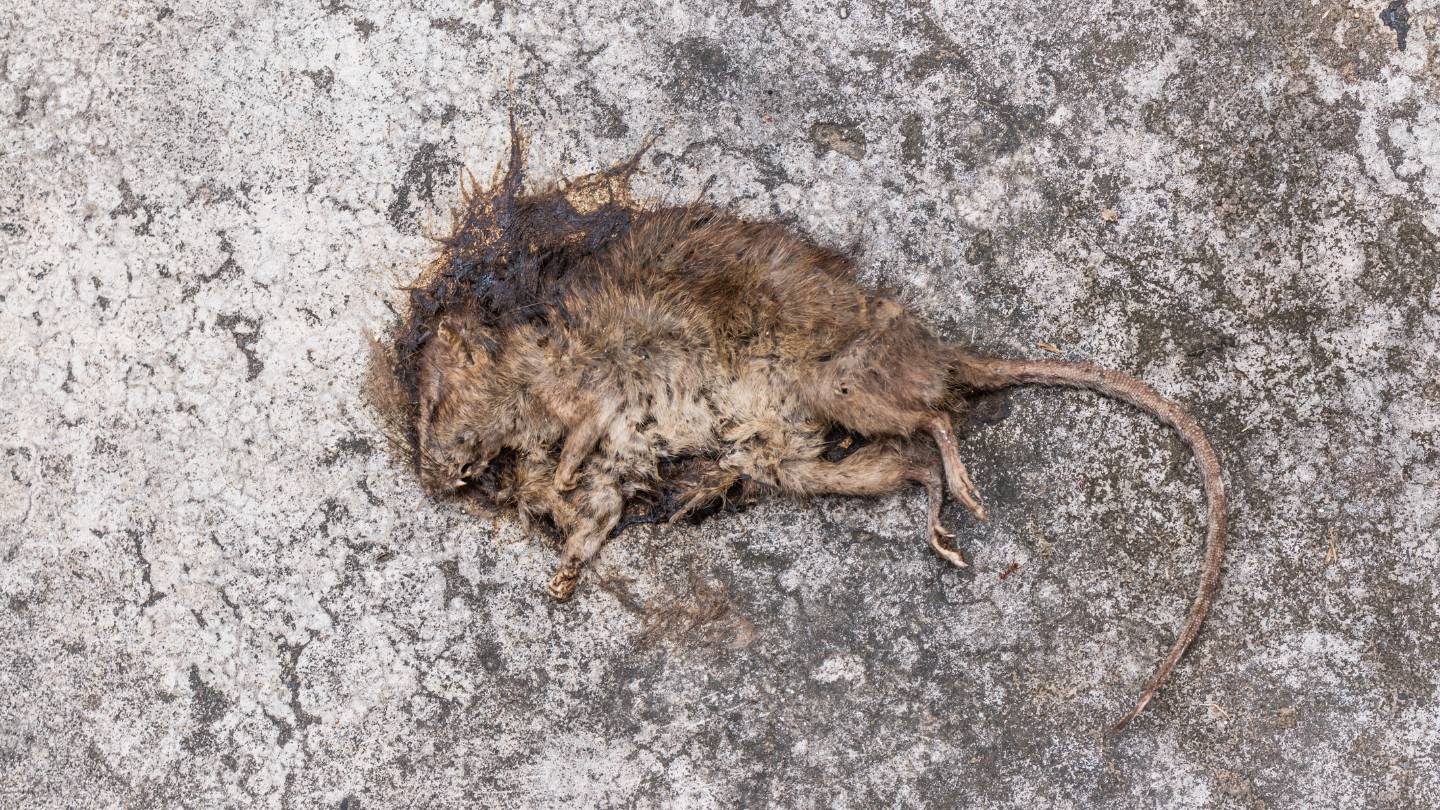
Dead Animal Removal Services
Keep in mind that you shouldn't try to remove a dead animal on your own if you want to avoid any problems. There are a lot of diseases that can spread from dead animals, and there are usually live animals nearby.
For instance, if you spot one dead, a whole band of coyotes is not far away. The discovery of a dead snake may signal the presence of numerous others in the area.
It would help if you never tried to clean up after a dead animal. Wild skunks can leave an odour that lingers for days, while racoons and feral cats provide a threat of disease.
There may be undetected carcasses on your property if you've experienced a sudden deterioration in your health and respiration. Our professional team can remove dead animals, including snakes, coyotes, and bats.
Conclusion
Getting rid of dead animals is an important part of keeping your home clean and safe. They can help stop health risks, like rats or insects spreading diseases, and keep other pests away. To make sure that dead animals are thrown away properly, you need to hire pros. They have the right tools and training to keep you and others safe from getting diseases.
Professionals can help with safety, care, proper disposal, odour control, saving time, giving you peace of mind, keeping things clean and sanitary, making sure you follow the law, treating people with respect, stopping problems from happening again and protecting your property.
When working with animal bodies that are breaking down, health and safety are the most important things. Only professionals with the right training and tools can safely remove the body from your property, keeping you and your family safe from getting sick. Cleaning and disinfecting the area where the animal was found are also important steps to take to lower the risk of disease and bad smells.
In many places, it may be illegal to get rid of a dead animal on private land, so proper disposal is very important. Hiring a professional trash management service can help you stay out of trouble with the law and avoid fines. Another benefit of hiring pros is that they can control smells because they have deodorising products and tools to fight off bad animal smells.
Professionals can get to any place, even places that are hard to get to, so they need to be able to get to the body. Legal obedience is also very important since breaking the rules can lead to fines and other punishments.
Professionals who remove wildlife put humane treatment at the top of their list of priorities. They have been trained in techniques that keep animals safe and happy during the removal process.
In conclusion, if you want to keep your property clean and safe, you need to hire professionals to get rid of dead animals.
Getting rid of a dead animal is a difficult job that needs professional help. Do-it-yourself removal is very bad for your health because if you don't do it right, you could get sick or spread bugs and diseases. Wildlife that has died can also damage your home, yard, and landscaping as it breaks down. It is important to hire pros with the right tools and knowledge to make sure safety and stop more damage.
Assessing, dealing, disposing of, cleaning, and preventing are all parts of getting rid of dead animals. This includes finding the dead animal, treating it carefully, getting rid of it properly, cleaning and sanitising the area, and taking steps to stop infestations from happening again.
There may be a dead animal in your home or place of work if you smell something strange, see flies, or have breathing problems. Wildlife removal services can get rid of skunks, snakes, wolves, possums, bats, rats, and bees, among other animals. If you need help getting rid of a dead animal, call a local pest control service. Eating dead animals can spread diseases.
Rents can spread diseases that are dangerous, and rodent infestations can be very bad. If you think rats are in your home, write down where they've been and call a professional animal removal service. Rats and racoons, which are bigger wild animals, can do a lot of damage to a home.
Dead animal removal services are necessary to keep people and animals close from getting sick from dead animals. It is important to call a professional team to pick up both living and dead animals, and you should stay away from wild animals that are hurt or sick.
Content Summary
- Discovering a dead animal on your property is unpleasant.
- Removing a dead animal yourself is unattractive.
- Attempting DIY removal poses several risks.
- Dangers include potential health risks and illnesses.
- Incorrect disposal can attract pests like insects and rodents.
- Hiring professionals for dead animal removal is crucial.
- Experts ensure safe and proper removal without health hazards.
- Clean and clear land results from hiring removal services.
- Professionals dispose of animals cleanly, reducing health risks.
- DIY cleanup risks illness and contamination.
- Safety concerns arise with decomposing animal carcasses.
- Professionals use safety equipment for risk-free removal.
- Experts possess the necessary gear and training for safety.
- Thorough cleaning minimises disease and odour risks.
- Proper disposal prevents legal issues and fines.
- Professionals have deodorising tools for odour control.
- Hiring saves time compared to DIY removal.
- Professionals provide peace of mind in distressing situations.
- Cleanup and sanitisation are essential after removal.
- Experts have access to any location for removal.
- Legal compliance ensures adherence to wildlife protection laws.
- Humane treatment is a priority for removal professionals.
- Prevention measures reduce the likelihood of reoccurrence.
- Protecting property from wildlife damage is a key benefit.
- Damage includes harm to insulation and electrical wiring.
- Professionals prevent costly repairs due to property damage.
- Finding a dead animal is disturbing; removal is challenging.
- DIY exposes to health risks and potential property damage.
- Professionals ensure safe removal without harm to property.
- Specialists have training, experience, and equipment.
- DIY risks may cost more money in the long run.
- Effective removal is crucial for safety and property preservation.
- Professionals use a methodical approach for removal.
- The assessment identifies the species for proper removal.
- Handling requires caution and protective gear.
- Disposal options include burial, burning, or professional facilities.
- Cleaning after removal prevents bacterial spread.
- Prevention involves regular property checks and repairs.
- Unusual odours may indicate a dead animal; act promptly.
- Wildlife removal services handle various creatures.
- Pest control service assistance is recommended.
- Avoid DIY removal due to disease transmission risks.
- Rodent problems require comprehensive control services.
- Rodent infestations can lead to health issues.
- Professional animal removal is essential for suspected rodents.
- Wild animals can cause substantial property damage.
- Racoons are known for destructive behaviour.
- Cone-shaped holes may indicate rat presence.
- Wild animals may seek confined spaces for safety.
- Call professionals for live or dead animal removal.
Frequently Asked Questions
Yes, in many areas, there are laws and regulations regarding the proper disposal of dead animals. Hiring professionals ensures compliance with these regulations.
Absolutely. Dead animals can carry diseases affecting other animals, including pets and wildlife, making proper removal crucial for their safety.
The decomposition of dead animals can lead to structural damage and contamination, especially if the carcass is within walls or confined spaces.
Professionals use specialised equipment and techniques to neutralise and eliminate odours, ensuring your property is free from unpleasant smells.
While it might seem cheaper to handle it yourself, the long-term costs associated with health risks, property damage, and potential legal issues outweigh the upfront cost of hiring professionals. It's a wise investment in safety and peace of mind.
